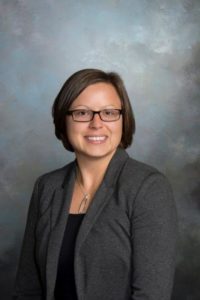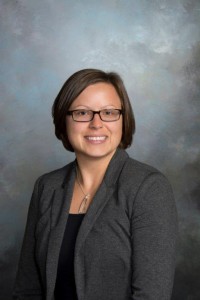Colleagues,

Dr. Laura Wilson
Please join us for this exciting and educational conversation with Dr. Laura Wilson, who recently co-authored A Clinician’s Guide to Disclosures of Sexual Assault. This event will occur on Thursday, April 7th, between 4-5 pm in the HCC’s Digital Auditorium. We will provide light refreshments, and the first ten attendees will receive a copy of the book.
About the Co-Author: Laura C. Wilson received her BS in Psychology and Sociology from Virginia Tech, her MA in General/Experimental Psychology from the College of William & Mary, and her Ph.D. in Clinical Psychology from Virginia Tech. She completed her pre-doctoral internship at the Central Texas Veterans Health Care System. She joined the Department of Psychological Science at the University of Mary Washington in 2013 and is currently an Associate Professor. She also currently serves as the Director of the University of Mary Washington Safe Zone, a program that advocates for and educates about the LGBTQ+ community.
About the Book: Sexual assault is a worldwide public health concern, as it occurs to people of all genders at alarming rates and results in serious impacts to physical and mental health. Furthermore, the reactions that survivors receive from formal and informal supports can significantly influence survivors’ recovery. Given the prevalence of sexual assault, practitioners need to be prepared to handle disclosures of sexual assault from clients.
A Clinician’s Guide to Disclosures of Sexual Assault provides guidance for service providers on how to interact with survivors of sexual assault, defined here as sexual contact or penetration without the explicit consent of the victim. The book highlights that there are specific populations (e.g., sexual minorities, men) and settings (e.g., military, higher education) that require unique considerations when discussing sexual violence. Beginning with a foundation of literature focused on sexual assault and survivor disclosure, chapters build upon current theory and offer recommendations for conducting effective assessments and psychotherapy with survivors. Finally, case examples are presented to illustrate how these approaches can be used in practice. Professionals across disciplines, such as medical or educational settings, law enforcement, and victim services, have an instrumental role in facilitating survivor recovery, and this book offers best practices for delivering services in an affirming manner.
This event is sponsored by the Center for Prevention and Education (CPE), Department of Psychological Science, Safe Zone, Talley Center for Counseling Services, and Women’s, Gender, and Sexuality Studies (WGST).
For more information, contact prevention@umw.edu
 Safe Zone is excited to announce several upcoming events.
Safe Zone is excited to announce several upcoming events.
 On October 20, from 11 a.m. and 2 p.m. in the lobby of the UC we will be celebrating International Pronouns Day. On that day, we will be making pronoun buttons in recognition of how important it is to respect others’ pronouns and to share our own pronouns. All are welcome. We will be giving out stickers and buttons.
On October 20, from 11 a.m. and 2 p.m. in the lobby of the UC we will be celebrating International Pronouns Day. On that day, we will be making pronoun buttons in recognition of how important it is to respect others’ pronouns and to share our own pronouns. All are welcome. We will be giving out stickers and buttons.